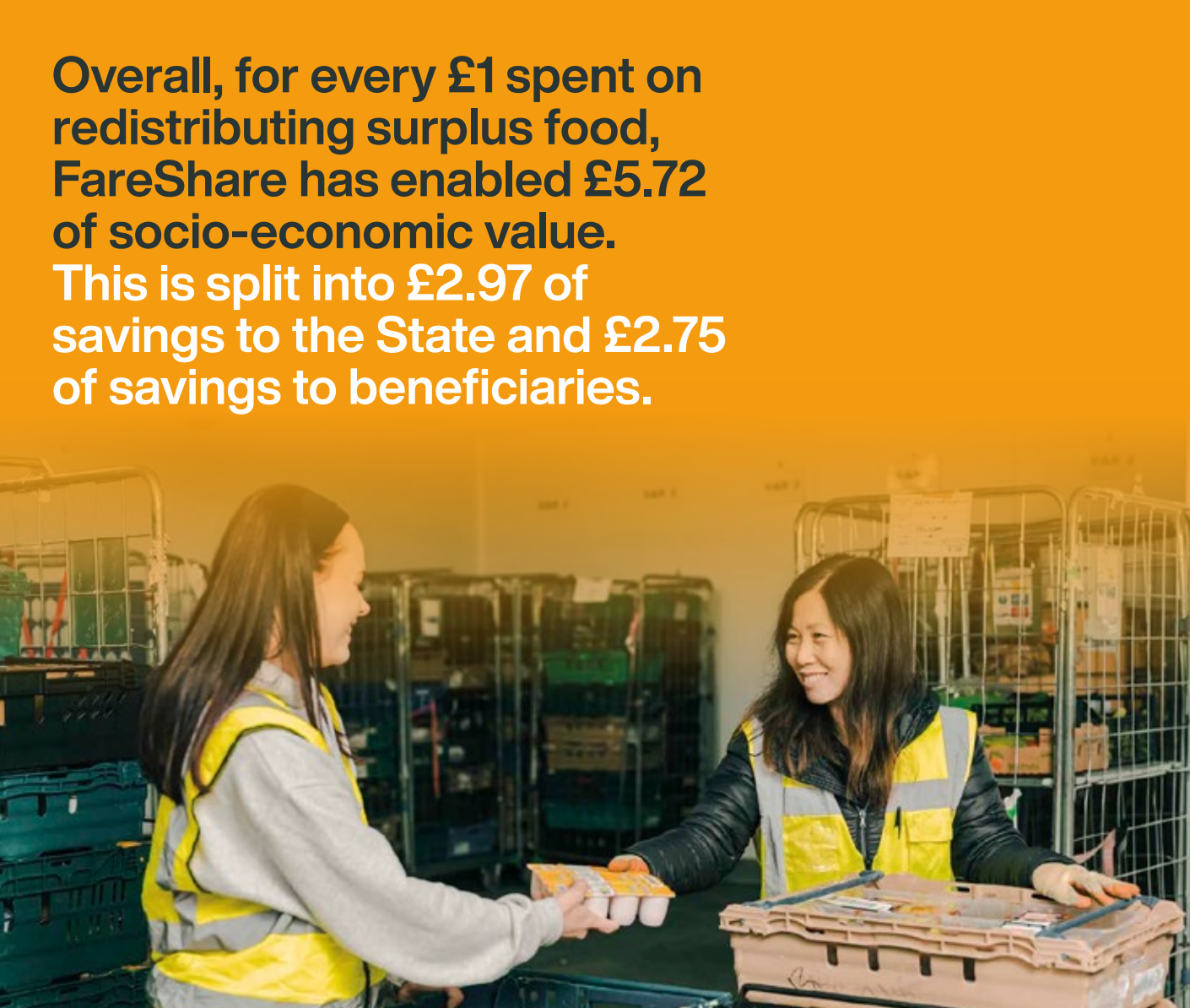FareShare, the British FEBA Member, published a study together with the University of Hertfordshire evaluating the economic and social impact of FareShare’s contribution to fighting hunger and tackling food waste. The findings show that FareShare’s work creates a net economic and social value of £ 225 mio. Of this total, £ 107.661.372 (48%) is attributed to savings for beneficiaries and £ 117.568.637 (52%) is savings and directly to the state.
A new survey conducted by FareShare on the the 8,500 charities and community groups receiving food from FareShare revealed the following findings:
- Almost 90% of charities say that demand for their services increased in the past year
- 71% are seeing more people accessing support for the first time
- Over half (57%) of those people are in employment
- 65% of charities seeing new people say they are seeing more families with children who need support.
While demand for food from FareShare has skyrocketed, 3 million tonnes – the equivalent of 7 billion meals – goes to waste on UK farms every year. The report offers valuable insights into the “real price” and economics of food vulnerability and its effects on society, food banks and the government.
“The cost avoided by the State is a staggering £118 million a year, yet so much of this delicious surplus food goes to waste in our farms and factories every year. This is indefensible when so many people across the UK are struggling. We need the Government to invest in food redistribution and get good food to people who need it, not let it go to waste.”
Lindsay Boswell, FareShare CEO




